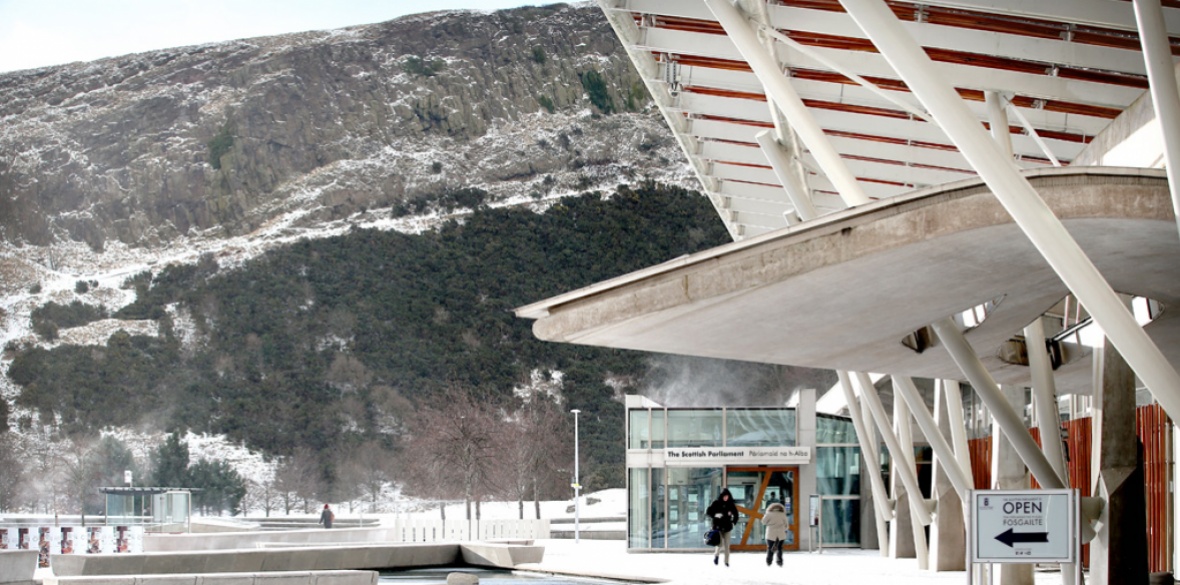This is the last article you can read this month
You can read more article this month
You can read more articles this month
Sorry your limit is up for this month
Reset on:
Please help support the Morning Star by subscribing here
A ROCK and a hard place. This is the space where Scotland’s councils can be found.
In its most recent report on Scotland’s councils, Audit Scotland (Overview 2020) notes that “demographic and social change is creating demand for services while the strain on budgets continues to intensify.
“National policy commitments are increasing and the stresses on other public services and third-sector partners add to the difficulties in delivering services.”
As if that is not bad enough, Covid-19 has ripped right through public services.
The bulk of council funding comes from the Scottish government via block grant from its £49.3 billion budget, a figure which represents a real-terms increase of 3.7 per cent compared with 2019/20.
However council funding from this source has declined in real terms by 3.3 per cent since 2013/14.
Council funds dedicated to central government priorities have increased from £1bn to £1.5bn — a whopping 14.1 per cent of council money before deciding council priorities. This £0.5bn shortfall creates further pressure on councils.
The continuance of one-year budgets from Holyrood to councils is recognised by Audit Scotland as a real weakness in the financial planning. Councils need a greater time span in order to plan for services.
A good example of demographic pressures is spending on home care for older people, which has increased by 17.3 per cent, but the increase in number of hours is only 1.3 per cent, never mind the fact that the quality of that care is declining.
With 10.9 per cent of Scotland’s population in 2019 in the 65 to 74 age group and forecast to increase by 23 per cent by 2043, the need for a fully funded national care service is pressing.
This requires legislation and funding and needs to be a priority for Holyrood.
Alongside that demographic pressure, there are other pressures imposed on councils.
A good example of this is that councils have picked up the tab to pay for the living wage being paid to all workers in the care sector.
It is right that it should be paid, but it is also right that it should be funded.
Edinburgh has to find another £3.4m, meaning more cuts on top of cuts already made and more to come to the budget of its Integrated Joint Board.
The structural underfunding of Integrated Joint Boards — most are deficit run — is another strain on council finances and regularly provides real financial headaches for councils when setting their budgets.
There is no sign that this will abate. This is a burden placed on councils by Holyrood but inadequately resourced.
Last year the Scottish government boasted of a £770m underspend, a huge increase from the year before, in its budget and it said that “not a penny would go back to Westminster.”
It didn’t really go to Scottish councils either. The Convention of Scottish Local Authorities asked for fair funding for 2020/21 and instead got more cuts.
It was given £495m by the Scottish government to meet its commitments but Cosla estimates that the real cost is £590m.
It is estimated that the gap for IJBs is some £200m, meaning cuts. But the topper is that it took Holyrood six weeks to agree to give the Barnett consequential money for councils to cope with Covid-19 and even then it was paid in weekly instalments over a further four weeks.
The contempt for local government could not be made any more clear, and there is no sign of any change.
There will be no change in council funding despite the launch of Just Change in December 2015.
There will be no change except downwards in council funding from Holyrood despite the hard work on the front line against Covid-19.
Councils were struggling with their budgets before the virus took hold. Cuts were being felt and services are being cut right now, whether Citizens’ Advice funding, or our friends in the third sector who are at the sharp end too.
The exporting of budget cuts by councils to the third sector or their arm’s length external organisation cannot continue.
Councils are at breaking point. There is no sign that Holyrood has the political maturity, never mind the will, to recognise the predicament of local government and the peril faced by citizens who rely on the services they provide.
This is a dereliction of duty on their part. When you are in between a rock and a hard place you are forced to make what Audit Scotland says are “hard decisions.”
It will take the combined effort of citizens, trade unions, councillors and parliamentarians working together to get Scotland’s councils out from between a rock and hard place. There is work to be done.
Gordon Munro is a Labour councillor in Leith ward, City of Edinburgh Council, 2003 to date.











